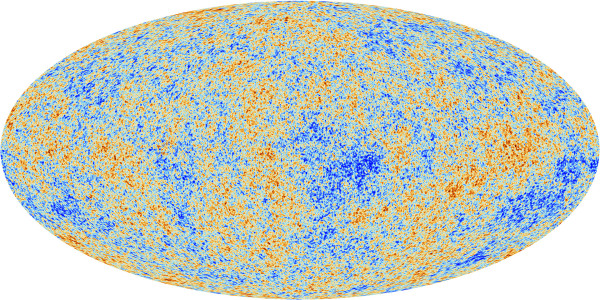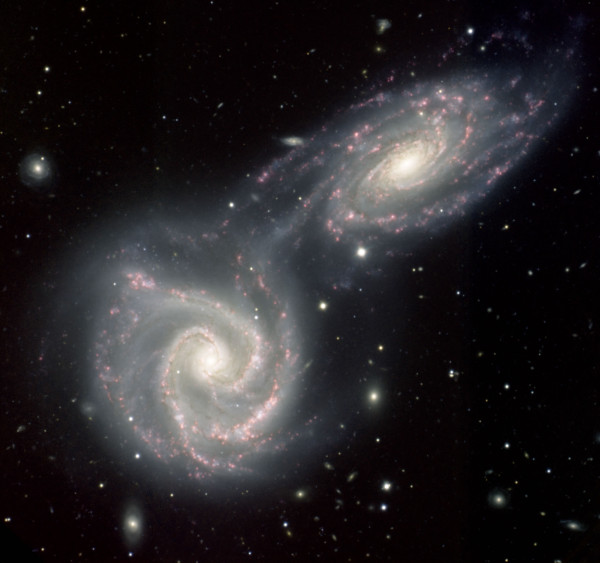“In my better sense of mind, I know that I’m far from alone and far from the worst, and the earth keeps spinning. Everything keeps moving, with or without me.” -Phil Anselmo
The Universe is a chaotic place, where nothing truly exists in isolation. Even if, at the moment of the Big Bang, nothing in the Universe was born having had any interactions with anything else, that state wouldn't have lasted for long.
Even the most pristine "baby picture" of the Universe we have comes only after astronomical numbers of interactions for each and every particle, and gravitation is the most guilty culprit in it all. From individual particles to atoms to planets to solar systems to galaxies and more, everything seems to rotate, but if the Universe was born without any intrinsic rotation, where does this phenomenon come from?



Ethan,
Some time back, I asked a similar, if not in fact the same question. For every action ,a reaction is needed, and where is the 'force' necessary to start a body rotating? Your answer back then was the uneven collapse of a circle (more or less, applying a 'force').
I posit another "unanswerable"; the "Big Bang" was actually a reversal, like the polar reversal of the Sun, or our Earth, that resulted in a magnetic reversal. If what we perceive as "dark matter-dark energy" is merely the left overs of what all matter was like before it changed to matter as we see it now. Maybe magnetic is not the proper term, but the concept is the same.
Thank you for all the wonderful explanations, and the thought directions you send to me.
Eli
Reminds me of Einstein saying "God does not play dice". Well, obviously we know that random quantum fluctuations do exist, and in a way that would seem obvious or else the universe would be perfectly and uniformly distributed with matter and there would be no movement or anything interesting. Hawking had an example in a TV show where he had marbles perfectly distributed and nothing happened, but give one a tiny kick and suddenly gravity takes over and a very complex system of movements evolve of clumps and swirls.
Phil Anselmo is likely a fan of metal-rich stars.
Regarding Fill's comment (#2), I've also seen that episode, but I wasn't impressed by the example. I've probably misunderstood how it works, but in my mind, in a room filled with perfectly stationary marbles, all equally distant from each other, the ones at the edges will have nothing balancing the gravitational pull of the marbles mediately next to them toward the center. I assume the outermost marbles will eventually move toward the center of the room setting the whole system out of balance.
It seems to me, the only way this may work is that the floor is curved on it self to form a sphere or that the floor is infinitely large with an infinite number of marbles so that there is no actual center and no edges.
I assume the universe may be infinitely large, but the amount of matter would be finite, does it mean space is curved on itself or I completely missed the point?